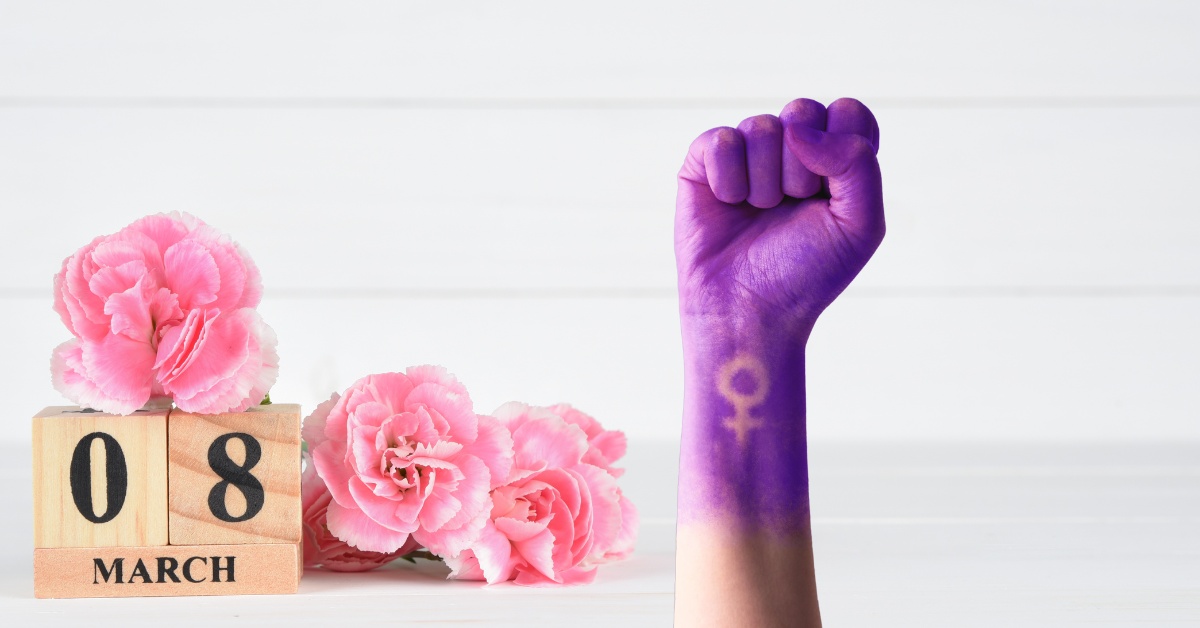Why is March 8th International Women’s Day?
Every year, March 8th marks a global celebration of women’s achievements, a day dedicated to advocating for gender equality and women’s rights. International Women’s Day (IWD) is not just another date on the calendar; it’s a movement, a moment of unity, and a worldwide acknowledgment of women’s contributions to society, culture, economics, and politics. But why was March 8 chosen as International Women’s Day?
The story behind this date is as compelling as the countless stories of the women it aims to honor. Let’s delve into the historical roots and significance of March 8th, exploring how it became synonymous with the ongoing fight for gender equality and women’s empowerment worldwide.
What is the history of women’s day?
The origins of International Women’s Day can be traced back to the early 20th century, a time of great social turmoil and transformation. The Industrial Revolution had significantly altered the social fabric, and women, who formed a substantial part of the workforce, began to demand better working conditions and equal rights.
The first National Woman’s Day was observed in the United States on February 28, 1909, organized by the Socialist Party of America in remembrance of the 1908 garment workers’ strike in New York, where women protested against inhumane working conditions.
The idea of an international day to celebrate and advocate for women’s rights gained momentum in 1910 at the Second International Socialist Women’s Conference in Copenhagen. Inspired by the American initiative, Clara Zetkin, a German socialist and advocate for women’s rights, proposed the establishment of an International Women’s Day.
The proposal received unanimous approval from the over 100 women from 17 countries in attendance, representing unions, socialist parties, and working women’s clubs.
The first International Women’s Day was observed on March 19, 1911, in several European countries, including Austria, Denmark, Germany, and Switzerland, with rallies demanding women’s rights to work, vote, be trained, hold public office, and end discrimination.
However, in 1917, against the backdrop of World War I, March 8th became definitively associated with International Women’s Day.
On this day, women in Russia took to the streets demanding “bread and peace” – an end to World War I, to food shortages, and to czarism. This strike for “bread and peace” led to the czar’s abdication four days later and the provisional government granting women the right to vote. According to the Gregorian calendar, the strike date was March 8th, and it has been celebrated as International Women’s Day ever since.
The Evolution of International Women’s Day
From its socialist roots, International Women’s Day has become a global day of recognition and celebration across developed and developing countries. It has transcended political, linguistic, cultural, and economic boundaries to become a day for advocating for gender equality and celebrating the achievements of women in all spheres of life.
Each year, a theme is chosen to highlight specific challenges and opportunities related to women’s rights and to mobilize action.
The United Nations began celebrating International Women’s Day in 1975, further cementing its importance as a global day of recognition. The day is not only a call to action for accelerating gender parity but also an opportunity to reflect on the advances made, call for changes, and celebrate acts of courage and determination by ordinary women who have played extraordinary roles in the history of their countries and communities.
International Women’s Day Today
Today, International Women’s Day serves multiple purposes. It is a day of protest against gender inequality and celebrating women’s achievements, from the political to the social, across the globe. It is marked by educational initiatives, discussions, presentations, and marches that aim to spread awareness and encourage action toward achieving gender equality.
The significance of March 8th lies in commemorating the historic struggles of women and acknowledging and addressing ongoing challenges. It is a day to shine a light on issues such as the gender pay gap, gender-based violence, and the need for more inclusive, equitable opportunities for women of all ages, races, and identities.
What is the theme for 2024 Women’s Month?
The 2024 National Women’s History Month theme, “Women Who Advocate for Equity, Diversity, and Inclusion,” highlights women dedicated to forging a more equitable society.
This theme celebrates those who understand the importance of completely eradicating bias and discrimination to achieve a future filled with equality and justice. It acknowledges the efforts of women from various backgrounds who recognize that fairness in our institutions and social interactions is paramount for creating an inclusive world.
Throughout history, women have advocated for change, challenged the status quo, and worked tirelessly to ensure that everyone, regardless of their background, has equal opportunities and rights. The 2024 theme honors these women, highlighting their role in pushing for a society that values diversity and inclusion. Their initiatives extend across all sectors of society, including corporations, the military, federal agencies, and educational institutions, aiming to address and rectify injustices.
Under established forces that aim to misinterpret, exploit, or discredit their efforts, women advocating for equity, diversity, and inclusion demonstrate remarkable courage and resilience. Their work involves recognizing the need for change and actively participating in creating programs and policies that foster a more inclusive environment. These women are role models, showing that progress requires action and dedication to fairness and equality.
The theme for 2024 serves as a call to action, urging us to recognize and celebrate the contributions of women who strive to make our world more just and equitable. It encourages us to reflect on the progress made and the work that still needs to be done to achieve gender equality and inclusivity. This theme underscores the collective effort needed to build a society where everyone is included and valued by highlighting the importance of hearing diverse voices and perspectives, especially from a young age.
International Women’s Day on March 8th is more than just a date. It is a global rallying point for advocating for gender equality, celebrating women’s achievements, and pushing for meaningful change. It reminds us of the collective power of women’s voices and actions in shaping a more equitable world.
As we observe International Women’s Day, let us remember the courage and determination of the women who came before us and draw inspiration from their struggles. Let’s commit to making gender equality a reality, not just on March 8th but every day. By doing so, we honor the true spirit of International Women’s Day: a commitment to women’s rights, equality, and the belief that a balanced world is a better world for all.

